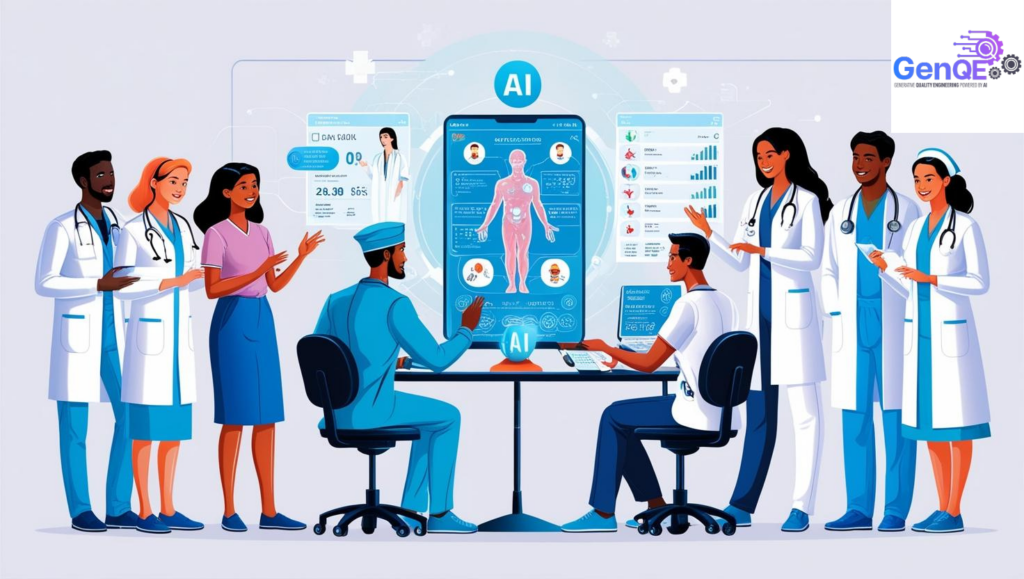
Artificial Intelligence (AI) is transforming the healthcare industry, enhancing diagnostics, improving patient care, and streamlining medical operations. From early disease detection to personalized treatment plans, AI is shaping the future of healthcare.
🔬 How AI is Revolutionizing Healthcare
1️⃣ Early Disease Detection and Diagnosis
AI-powered algorithms analyze medical images, lab results, and patient data to detect diseases like cancer, cardiovascular conditions, and neurological disorders at an early stage. Machine learning models can process vast amounts of data faster than human doctors, improving diagnostic accuracy.
2️⃣ Personalized Treatment Plans
AI enables precision medicine by tailoring treatment plans based on a patient’s genetic makeup, medical history, and lifestyle. By analyzing large datasets, AI suggests the most effective treatment approaches, improving patient outcomes.
3️⃣ Drug Discovery and Development
The traditional drug discovery process is expensive and time-consuming. AI accelerates this process by predicting how drugs will interact with biological systems, identifying potential candidates faster, and reducing the cost of bringing new medicines to market.
4️⃣ Enhanced Medical Imaging
AI-powered imaging tools assist radiologists in detecting abnormalities in X-rays, MRIs, and CT scans with greater accuracy. These systems help in spotting issues that might be overlooked by the human eye, leading to quicker and more accurate diagnoses.
5️⃣ Virtual Health Assistants and Chatbots
AI-driven virtual assistants and chatbots help patients schedule appointments, answer medical queries, and provide initial diagnosis based on symptoms. These tools reduce the burden on healthcare professionals and improve patient engagement.
6️⃣ Predictive Analytics for Disease Prevention
By analyzing patient data, AI can identify individuals at risk of chronic diseases and recommend preventive measures. Hospitals use AI-driven analytics to predict patient deterioration, allowing early intervention and reducing hospital readmissions.
🏥 Challenges and Ethical Considerations
Despite its potential, AI in healthcare faces challenges, including data privacy concerns, regulatory compliance, and the need for transparent decision-making. Ensuring AI models are unbiased and ethically trained is critical to building trust in AI-driven medical decisions.
🔮 The Future of AI in Healthcare
With advancements in AI and machine learning, the future of healthcare will see:
✔️ AI-assisted robotic surgeries
✔️ Smart wearables for real-time health monitoring
✔️ AI-driven mental health support systems
✔️ Improved accessibility to quality healthcare globally
AI is not replacing doctors but augmenting their capabilities, enabling them to provide better and faster patient care. As AI continues to evolve, its integration into healthcare will lead to groundbreaking innovations, ultimately saving lives and improving global health.